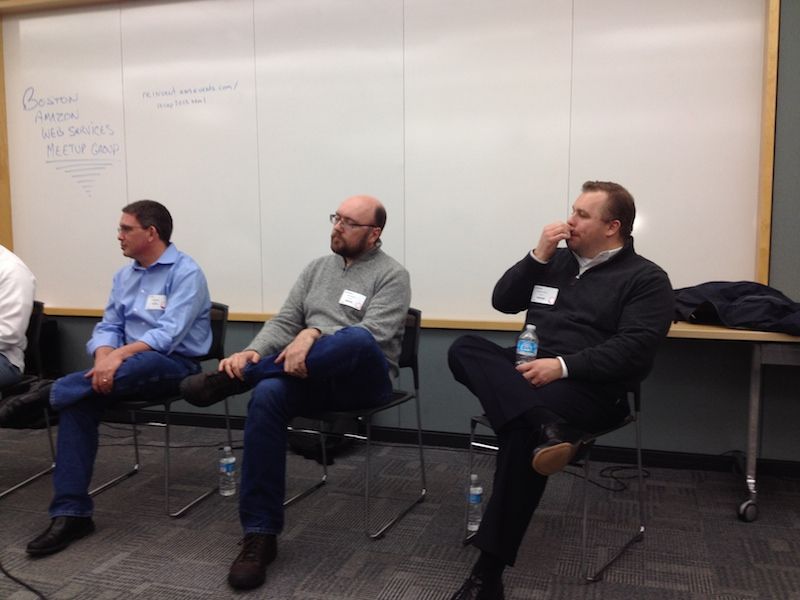
Never Lower the Hiring Bar
We all know the Apple Macintosh team quote: “A player hire A players; B players hire C players.” When I first started hiring our technical team, I was surprised how competitive the Boston market was for top talent. In many ways it was reminiscent of hiring at the end of the Dotcom Boom, where you were likely to meet someone and extend an offer in the same day (okay, not quite that competitive yet). In the beginning, it was relatively easy to pass on good but not great engineers, but as time went on, the pressure to hire mounted and I found myself feeling the gravitational pull of B players. In spite of a few weak moments, I resisted the pull, allocated more time than I ever expected toward hiring, and now have the pleasure of working with an outstanding technical team. When given a choice between fast or right hiring, right must always win in an early stage startup.
Practice Customer Development
The first time I read The Four Steps the Epiphany, it suddenly became clear to me what I’d been missing. The concept of customer development seemed like an embarrassingly obvious way to reduce startup risk. When I was a one-man show, customer development was the only way to build the initial Minimum Viable Product. But as the company grew and my focus fragmented, I found it hard to maintain the customer-driven approach across the bigger team. But after a few missteps, we gradually found our way back to customer development. The better approach though would have been to never have left it.
Integrity Matters
The integrity of the people you work with often doesn’t much matter when everything is going well. But startups are about managing risk, and with risk comes adversity. Building a company is challenging enough without having to worry about the integrity of the people you work with. So when confronted with talent versus integrity, choose both. If you doubt the integrity of the people you are working with, you are working in the wrong company.
The Enemy Is Outside the Gate
This fortunately was not an issue we had to contend with this year, in large part due to the types of people we hired. Like all new companies, we brought plenty of passion into several internal discussions. But our passion was founded in the success of the company and its customers, and so was never personal. From stories such as Cisco and Twitter we can conclude that it is possible to build a successful company despite serious internal infighting. But I’m not sure I’d want to try. If you are spending more time fighting internal battles than for customers, you likely have something seriously - possibly fatally - wrong in your startup.
Listen
I once off the cuff gave my middle school son this advice: “The best way to influence people is to be willing to be influenced.” After I said it I couldn’t help but smile and think: I probably should take my own advice. Being a good listener is among my many personal weaknesses. But in making a conscious effort to improve my listening this year, the results have sometimes surprised me. I once listened to a prospective customer provide me one of the best summaries I have heard of the positioning of my company in the market; a board member provide me a surprising technical insight; and a customer give me the next product epiphany. It’s amazing what can happen when you stop talking. ;)
Fail Fast In Hiring
We had a couple wrong hires in the company. I’m not saying they were bad hires: just not right for what we needed. Hiring the wrong people in an early stage company is recoverable only if you fail fast. In small companies, there is no where to hide if your skills / experience are mismatched to your job description. The best thing you can do is never hire the wrong person. The second best thing you can do is fail fast when you do.
Build Only Must Haves
While most of our feature investments have delivered a good ROI for our customers, we did make a few mistakes. The mistakes all share one common trait: we built something that didn’t have a paying customer anxiously waiting for its delivery. Two of the cases were caused by our belief that customers would want this feature in the future, supported by previous experience and general feedback from customers and prospects. But when the feature was delivered, the users providing the feedback liked but didn’t need the features, and so they have had minimal impact on our business. If a customer isn’t anxiously waiting for you to deliver a feature, they probably don’t really need it.
Enjoy the Ride
I once had a sailing instructor who said: “Motor boats are about the destination. Sailboats are about the journey.” Startups are roller coasters that can take you to great highs and low lows. While it’s rare to find someone who does not look back on their startup journey with fondness and nostalgia years later, it’s sometimes hard to remind yourself to enjoy the ride while you are in the moment. Don’t forget to enjoy the journey - it is sometimes over too soon.
